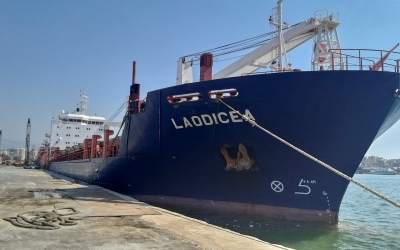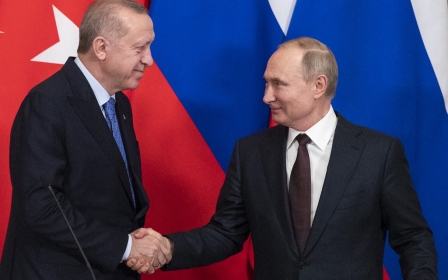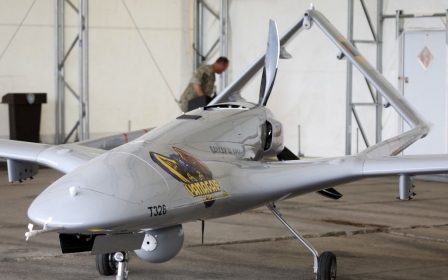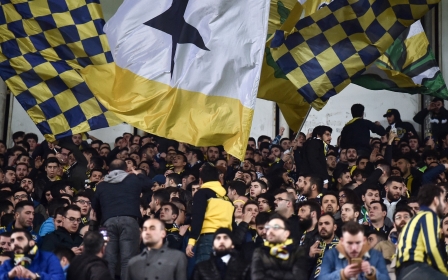First Ukraine grain shipment under new deal leaves for Lebanon
A grain shipment left Ukraine on Monday morning heading to Lebanon, the first such departure since the Russian invasion of Ukraine in February.
Due to arrive in Istanbul on Tuesday, the ship left under a new safe passage agreement between Moscow and Kyiv brokered last month by Turkey and the United Nations.
Fighting has prevented grain ships from leaving Ukrainian ports safely, contributing to soaring food prices around the globe.
The sailing of the Sierra Leone-flagged ship Razoni, which is loaded with corn, was confirmed by Turkish and Ukrainian officials.
"The first grain ship since #RussianAggression has left port. Thanks to the support of all our partner countries & @UN we were able to fully implement the Agreement signed in Istanbul," Infrastructure Minister Oleksandr Kubrakov said on Twitter.
New MEE newsletter: Jerusalem Dispatch
Sign up to get the latest insights and analysis on Israel-Palestine, alongside Turkey Unpacked and other MEE newsletters
Turkish Defence Minister Hulusi Akar said the ship will anchor off the coast of Istanbul at around 12:00 GMT (3pm local time) on Tuesday for a joint inspection, according to state-owned Anadolu news agency.
As part of the agreement signed last month, a joint command centre (JCC) was set up in Istanbul with personnel from the United Nations, Russia, Ukraine and Turkey.
Akar said more ships will follow soon.
The Russian invasion of Ukraine on 24 February has led to a worldwide food and energy crisis, and the United Nations has warned of the risk of multiple famines this year. Russia and Ukraine account for nearly a third of global wheat exports.
The deal aims to allow safe passage for grain shipments in and out of Chornomorsk, Odesa and the port of Pivdennyi.
Ukrainian presidential officials have said 17 ships were docked in Ukraine's Black Sea ports with almost 600,000 tonnes of cargo. Of these, 16 vessels held Ukrainian grain with a total tonnage of about 580,000 tonnes.
Moscow has denied responsibility for the food crisis, blaming western sanctions for slowing exports and Ukraine for mining the approaches to its ports.
Turkey as a mediator
The grain deal agreed on 22 July aims to release an estimated 22 million tonnes of wheat and other crops.
Signed in Istanbul, the deal empowered Turkey as the main interlocutor for the shipment of the grain, but it also puts immense responsibility on Ankara to be the country that ensures the smooth transaction of the mechanism.
The agreement is likely to validate Turkey's policy of neutrality in the Ukraine conflict, which will also strengthen President Recep Tayyip Erdogan on the world stage as a leader who has made progress in resolving the grain crisis.
Erdogan said during the signing ceremony that he hoped the deal would leave the hunger crisis behind, amid global food shortages and higher prices, and be a step towards ultimately reaching a peace deal.
The Istanbul-based JCC is designed to ensure that everything goes according to the agreement, which will be valid for 120 days with automatic renewal. Any complaints about the operation will be assessed and resolved through the JCC.
Middle East Eye delivers independent and unrivalled coverage and analysis of the Middle East, North Africa and beyond. To learn more about republishing this content and the associated fees, please fill out this form. More about MEE can be found here.





